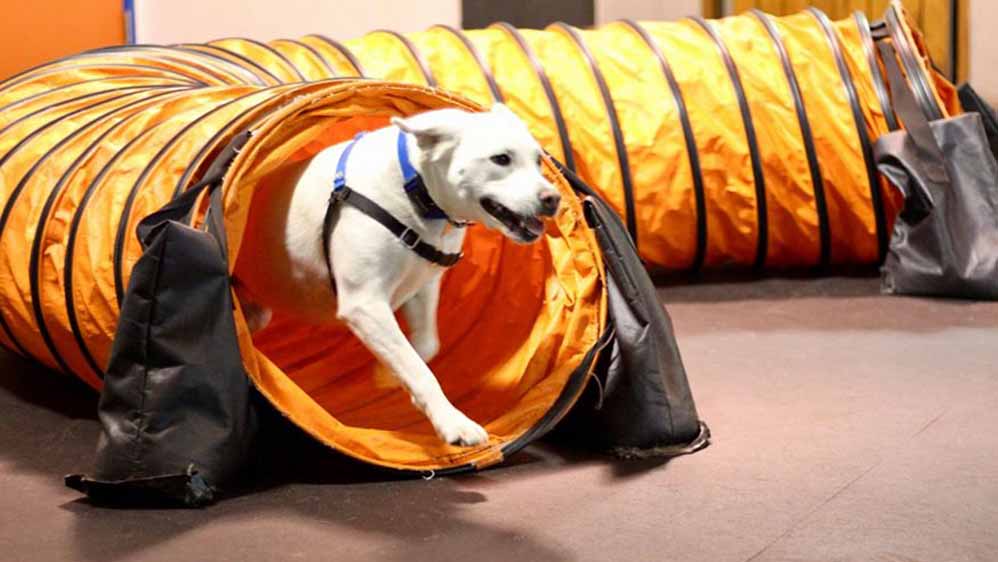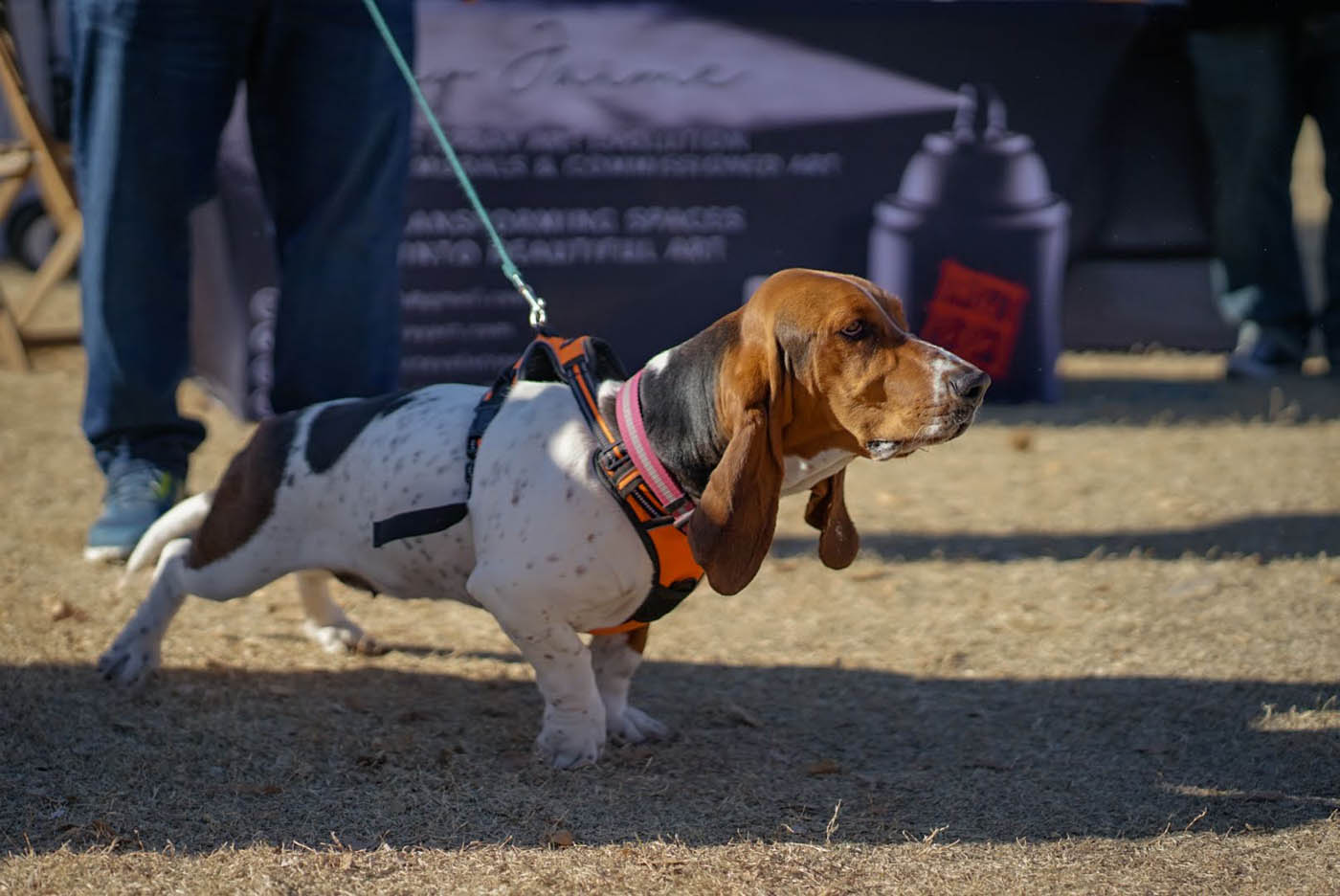Dog Training Charlotte NC: Your Course to a Mannerly Dog
Dog Training Charlotte NC: Your Course to a Mannerly Dog
Blog Article
Unlock Your Canine's Prospective: Proven Pet Dog Training Approaches for Success
Effective dog training is a nuanced process that rests on comprehending canine habits and utilizing clinically backed methods. Dog training. By incorporating positive support, developing clear commands, and focusing on socializing, pet proprietors can grow an efficient connection with their family pets. Nevertheless, difficulties commonly develop that need customized services and a client method. Checking out these shown methods discloses not just the capacity for behavioral improvement yet likewise the deeper bond that can be formed in between owner and dog. What essential approaches must be taken into consideration to genuinely unlock your dog's potential?
Recognizing Canine Behavior
Comprehending dog actions is vital for effective training and cultivating a positive partnership between pet dogs and their owners. A detailed grasp of canine body movement, vocalizations, and social interactions is crucial for acknowledging their needs and emotions. Pet dogs communicate mostly via non-verbal cues; as an example, a wagging tail may suggest exhilaration, while pinned ears can signal concern or entry.

Additionally, environmental aspects play a considerable function fit a canine's behavior. Changes in regular, brand-new environments, or the existence of unknown individuals can lead to stress or anxiousness in pets. Identifying these triggers allows owners to mitigate adverse responses and establish suitable training strategies.
Ultimately, a deep understanding of pet habits lays the foundation for successful training approaches, enhancing both behavior and the total bond in between the canine and its proprietor. dog training charlotte. This understanding is essential for fostering a well-adjusted, satisfied canine buddy
Positive Support Techniques
Reliable training depends heavily on favorable reinforcement strategies, which have been revealed to produce substantial cause shaping desired actions in canines. This approach includes rewarding a pet dog for exhibiting specific behaviors, consequently enhancing the chance that these habits will certainly be repeated. Incentives can take various types, including treats, appreciation, toys, or play, depending on what inspires the specific canine.

It is necessary to slowly phase out rewards as the pet discovers the behavior, transitioning to intermittent support. This method maintains the actions with time while stopping dependency on consistent benefits. By concentrating on favorable reinforcement, trainers can grow a relying on relationship with their pets, advertising a cooperative and healthy and balanced training atmosphere that enhances total obedience and performance.
Developing Consistent Commands
A basic element of effective pet dog training is the establishment of constant commands. Consistency in commands is vital for effective interaction between the instructor and the dog. When commands are consistent, dogs discover to associate certain words with desired habits, which increases the training process and boosts understanding.
To establish constant commands, it is crucial that all member of the family use the exact same terms and gestures. For instance, if someone uses "sit" while an additional says "take a seat," it can develop complication for the canine. Select clear, distinctive words for commands and guarantee everybody entailed in the dog's training abides by these options.
In addition, repetition is essential. Strengthen commands with constant practice, making sure that the dog gets adequate possibilities to react appropriately. When a dog effectively complies with a command, instant favorable support needs to adhere to. This training stick for dogs can be in the form of treats, praise, or playtime, solidifying the connection between the action and the command.
Finally, be client. Establishing consistent commands takes time and effort. With dedication and quality, you will certainly assist your pet dog establish a strong understanding of assumptions, inevitably bring about a browse around these guys mannerly buddy.
Socialization and Direct Exposure
Mingling a pet dog is necessary for promoting a confident and well-adjusted friend. This process involves revealing your pet dog to a variety of environments, individuals, and other pets to establish their social skills and flexibility. Early socializing, ideally in between the ages of three to fourteen weeks, is essential, as it lays the foundation for a pet dog's future behavior.
Throughout socialization, aim to supply positive experiences in various settings, such as parks, active streets, and homes with various other family pets. Introduce your pet dog to various stimulations, including audios, sights, and scents, guaranteeing that each experience is gratifying. This direct exposure helps minimize worry and anxiousness, leading the way for a much more resistant canine.
Involving in controlled team play sessions with various other canines can additionally enhance social abilities, teaching your family pet ideal interactions and borders. Always monitor your pet's comfort level throughout these experiences, gradually enhancing direct exposure as their confidence grows. Keep in mind, the objective is to create an all-round pet dog that flourishes in varied scenarios, promoting a harmonious connection with both human beings and various other animals. Prioritizing socializing will dramatically add to your canine's general joy and actions throughout their life.
Conquering Common Educating Difficulties

Another frequent issue is interruption. Pets may struggle to focus in unknown or active settings. Progressively desensitize your dog to disturbances by starting training in a silent environment and slowly presenting more stimuli as they come to be skilled (Dog training). Positive support techniques, such as treats and appreciation, can keep motivation and focus.
Additionally, behavioral problems like leaping or too much barking can become aggravating. Address these by showing different actions, such as resting calmly when greeting guests. Consistency and persistence are vital; enhance wanted actions consistently and avoid scolding, which can lead to confusion.
Lastly, recognize that each canine is distinct, and training timelines may vary. Tailor your method to your canine's private requirements, and seek professional guidance if required. With determination and the best techniques, getting rid of these difficulties can result in a well-trained, happy canine companion.
Verdict
To conclude, opening a pet dog's prospective necessitates a comprehensive approach that includes an understanding of canine actions, the application of read here positive reinforcement techniques, and the facility of constant commands. Early socialization and direct exposure to varied atmospheres even more enhance a pet's versatility and confidence. By addressing usual training difficulties with tailored approaches and persistence, a cooperative and harmonious partnership between pet and trainer can be fostered, inevitably leading to a well-behaved buddy with the ability of growing in different situations.
Efficient canine training is a nuanced procedure that hinges on recognizing canine habits and using clinically backed strategies.Comprehending dog habits is important for reliable training and fostering a favorable relationship in between dogs and their owners.Reliable training depends greatly on positive reinforcement strategies, which have been revealed to generate considerable outcomes in shaping preferred actions in dogs. When commands are consistent, pets learn to connect specific words with preferred actions, which accelerates the training process and improves understanding.
In verdict, unlocking a pet dog's possible necessitates a detailed strategy that incorporates an understanding of canine habits, the application of favorable support techniques, and the establishment of constant commands.
Report this page